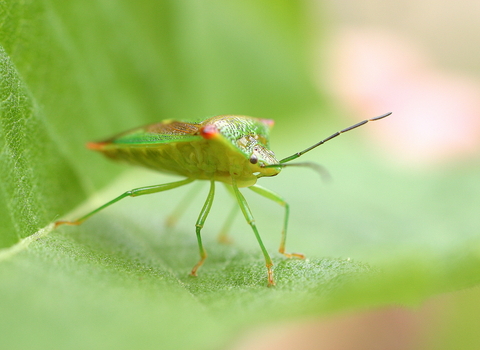
Birch Shield Bug ©Ian A Kirk
Birch shieldbug
As its name suggests, the birch shieldbug can be found feeding on silver birch, and sometimes hazel, in mixed woodland. Adults hibernate over winter, emerging in spring to lay their eggs.
Scientific name
Elasmostethus interstinctusWhen to see
May to OctoberSpecies information
Category
Statistics
Length: 0.8-1.1cmConservation status
Common.
